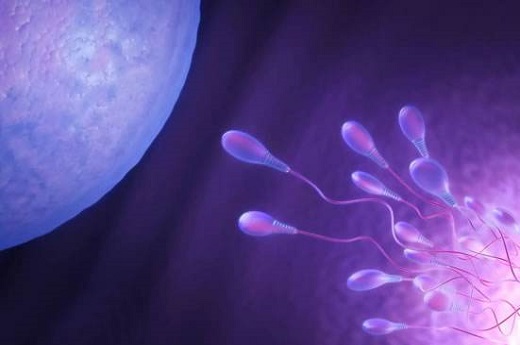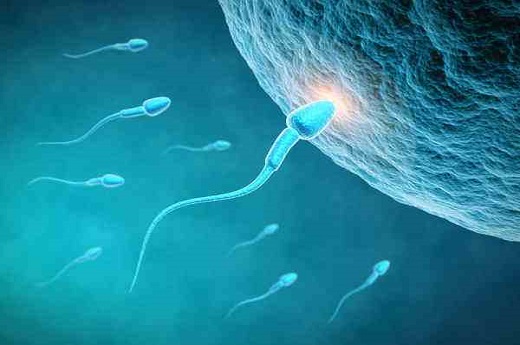Exploring the Relationship between Age and IVF Success Rate: Key Factors
In this article, we will delve into the relationship between age and in vitro fertilization (IVF) success rates, exploring the key factors that influence the outcome. We will examine the impact of age on fertility, the success rates of IVF at different age groups, the role of ovarian reserve, the effects of age on egg quality, the importance of preconception health, and the potential solutions for older women undergoing IVF. By understanding these factors, individuals and couples considering IVF can make informed decisions and improve their chances of success.
年龄与试管婴儿成功率的关键因素探究:Exploring the Relationship between Age and IVF Success Rate: Key Factors

Age and Fertility
年龄与生育能力
As women age, their fertility naturally declines due to a decrease in the quantity and quality of their eggs. This decline becomes more significant after the age of 35, and particularly steep after 40. For men, although age-related decline in fertility is less pronounced, advanced paternal age has been associated with a higher risk of certain genetic conditions in offspring. Understanding the impact of age on fertility is crucial for individuals and couples considering IVF.

随着年龄增长,女性的生育能力自然下降,这是由于卵子数量和质量的减少所致。在35岁后,生育能力下降更为显著,40岁后急剧下降。对于男性来说,虽然与年龄相关的生育能力下降不那么明显,但高龄父亲与后代某些遗传疾病的风险更高。了解年龄对生育能力的影响对考虑试管婴儿的个人和夫妇至关重要。
Impact of Age on IVF Success Rates
年龄对试管婴儿成功率的影响

Research has consistently shown that age is one of the most significant factors affecting the success of IVF. Success rates tend to decline as women get older, particularly after the age of 35. This is primarily due to the decrease in egg quality and quantity, as well as a higher likelihood of chromosomal abnormalities. Understanding the age-related trends in IVF success rates is essential for managing expectations and making informed decisions about fertility treatment.
研究一贯表明,年龄是影响试管婴儿成功率的最重要因素之一。成功率随着女性年龄的增长而下降,特别是在35岁后。这主要是由于卵子质量和数量的减少,以及染色体异常的可能性更高。了解年龄相关的试管婴儿成功率趋势对管理期望并做出关于生育治疗的明智决定至关重要。
Role of Ovarian Reserve
卵巢储备的作用
Ovarian reserve, which refers to the quantity and quality of a woman's eggs, plays a crucial role in determining the success of IVF. As women age, their ovarian reserve diminishes, leading to fewer and lower-quality eggs available for fertilization. This decline in ovarian reserve is a key factor contributing to the age-related decline in IVF success rates. Understanding the role of ovarian reserve can help individuals and couples assess their fertility potential and make informed decisions about the timing of IVF treatment.
卵巢储备指的是女性卵子的数量和质量,它在决定试管婴儿成功率上起着至关重要的作用。随着年龄增长,女性的卵巢储备减少,导致可用于受精的卵子数量减少且质量降低。卵巢储备的下降是导致年龄相关的试管婴儿成功率下降的关键因素。了解卵巢储备的作用可以帮助个人和夫妇评估他们的生育潜力,并对试管婴儿治疗的时机做出明智的决定。
Effects of Age on Egg Quality
年龄对卵子质量的影响
Advanced maternal age has been consistently associated with a decline in egg quality, which can significantly impact the success of IVF. Older women are more likely to produce eggs with chromosomal abnormalities, leading to a higher risk of miscarriage and genetic conditions in offspring. Understanding the effects of age on egg quality is essential for individuals and couples undergoing IVF, as it can help them prepare for potential challenges and consider alternative options such as donor eggs.
高龄产妇的卵子质量一直与下降相关,这可能会显著影响试管婴儿的成功率。年龄较大的女性更有可能产生染色体异常的卵子,导致流产和后代遗传疾病的风险更高。了解年龄对卵子质量的影响对进行试管婴儿的个人和夫妇至关重要,因为它可以帮助他们为潜在的挑战做好准备,并考虑使用捐赠卵子等替代选择。
Importance of Preconception Health
孕前健康的重要性
Optimizing preconception health is crucial for individuals and couples undergoing IVF, especially as they get older. Maintaining a healthy lifestyle, managing chronic conditions, and addressing any underlying reproductive health issues can significantly improve the chances of IVF success. Additionally, certain preconception interventions, such as ovarian reserve testing and fertility preservation, can help individuals understand their fertility potential and make informed decisions about IVF treatment.
优化孕前健康对进行试管婴儿的个人和夫妇至关重要,特别是随着年龄的增长。保持健康的生活方式,管理慢性病症,并解决任何潜在的生殖健康问题可以显著提高试管婴儿成功的机会。某些孕前干预措施,如卵巢储备测试和生育保护,可以帮助个人了解他们的生育潜力,并对试管婴儿治疗做出明智的决定。
Solutions for Older Women Undergoing IVF
年龄较大女性进行试管婴儿的解决方案
For older women undergoing IVF, there are several potential solutions to improve their chances of success. These may include personalized treatment plans, advanced reproductive technologies, and alternative options such as donor eggs or embryos. Additionally, considering complementary approaches like acupuncture, nutrition counseling, and stress-reduction techniques can also enhance the overall IVF experience for older women. Understanding these solutions is essential for individuals and couples navigating the complexities of IVF treatment at an advanced age.
对于年龄较大的女性进行试管婴儿,有几种潜在的解决方案可以提高她们的成功机会。这些可能包括个性化的治疗计划、先进的生殖技术以及使用捐赠卵子或胚胎等替代选择。考虑辅助方法,如针灸、营养咨询和压力减轻技术,也可以增强年龄较大女性的整体试管婴儿体验。了解这些解决方案对于在较大年龄接受试管婴儿治疗的个人和夫妇至关重要。
In conclusion, the relationship between age and IVF success rates is influenced by a complex interplay of factors, including age-related declines in fertility, ovarian reserve, egg quality, and preconception health. Understanding these key factors is essential for individuals and couples considering IVF, as it can help them make informed decisions, manage expectations, and optimize their chances of success. By exploring the impact of age on IVF success rates and the key factors involved, individuals and couples can navigate the complexities of fertility treatment with greater knowledge and confidence.
年龄与试管婴儿成功率之间的关系受到多种因素的复杂相互作用的影响,包括与年龄相关的生育能力下降、卵巢储备、卵子质量和孕前健康。了解这些关键因素对于考虑试管婴儿的个人和夫妇至关重要,因为它可以帮助他们做出明智的决定,管理期望,并优化他们的成功机会。通过探讨年龄对试管婴儿成功率的影响以及涉及的关键因素,个人和夫妇可以以更多的知识和信心应对生育治疗的复杂性。





